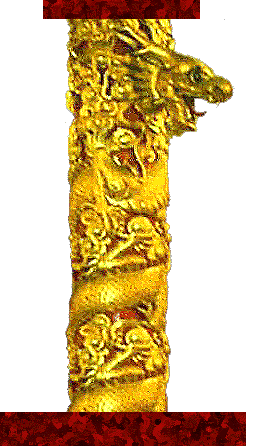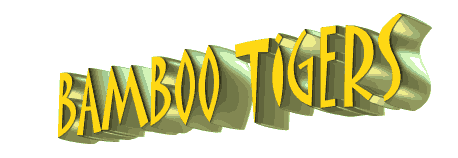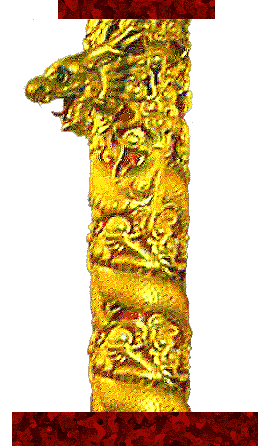| |
Peter Bergman and Phil Proctor, a comedy team of writers and entertainers known as Proctor and Bergman, had come up from Los Angeles. They were seated on the lower level with Dr. William Alexander, a psychiatrist who lived across the bay in Tiburon, but practiced in San Francisco. They had ordered food, then heard what sounded like a row of firecrackers going off. Along with everyone else, they hit the deck. The doctor felt a hot pain tear into his leg while around him there were "popping sounds, people diving for the floor, screaming, blood all over."
Jose Mendoza, 38, of Daly City, was having dinner with Danilo Elgarcia and Larry River. Danilo was facing the rear, so did not see the shooters. He heard shots and observed Jose bleeding. As soon as Jose was hit, Danilo pulled him under the table. Jose was in extreme pain.
John Frederick Kurfess Jr., 29, known as "Jeff," shared an apartment with Howard "Howie" Green, 23, while attending the graduate business school at the University of California at Los Angeles. Although he lived in Dallas, Texas, he had gone back to Los Angeles, in that month of September 1977, to help Howie move. They drove up to San Francisco on the Labor Day weekend, stopping off at Mountain View, about 45 minutes south of the city, to pick up friend Thomas James Berry, 25.
Tom didn't know Jeff, but Howie had been his roommate at Cornell during undergraduate days. The three of them proceeded to San Francisco to attend a reunion of UCLA business school alumni at Henry Africa's, a well known "singles" bar on Van Ness Avenue, which has a renowned namesake in Tokyo, but under different ownership. They ran into Gina White at the party, and all four of them went off for a late snack at the Golden Dragon. They arrived around 2 A.M.
They had a pleasant conversation about the activities of the day and the evening until the shooting began at 2:40. Jeff dropped to the floor. Nothing was said among them, but he assumed the rest did the same. Suddenly, a searing pain shot through his body, as another did for Howie, and another for Tom. Tom saw Jeff lying near him, his head between his arms. "Jeff! Jeff! For God's sake, Jeff!" Tom crawled closer, still repeating the name, and shook him by the shoulders. There was no reaction. Tom was sure Jeff was dead.
Carolina Sanchez, 30, a brunette actress who lived in Oakland, arrived at the restaurant at 2:20 A.M., with John Otis. They were seated on the lower level. She had ordered a meal and was about to spoon into her soup when the melee began. She dived to the rear, and John to the right. A chair fell against her hand. Glimpsing a pillar nearby, she snatched at the chair and tried to crawl with it in front of her for protection. But she saw there were too many people already crowded around the pillar. She stopped moving and lifted her head slightly, looking toward the shooter. A bullet ripped into her mouth. Passing out for a moment, she quickly regained consciousness. To her horror, she realized she was choking on her own blood.
Robert Yuen and Calvin Fong, both 18, had gone to the Contraption Disco in the Hotel Sheraton at Fisherman's Wharf earlier in the evening. With them was their friend, Donald Kwan, 20. All three boys were steady church-goers; Robert and Calvin sang in the same choir at Chinatown's Baptist Church. At the Contraption, they ran into four girls whom they knew. Everyone was familiar with the Golden Dragon. When the time of hsiao yeh approached, that's where they decided they would go. The three boys drove off together. Actually, Calvin wanted to go home, but as Robert was set on the Golden Dragon and promised to take him later, Calvin went along for the ride. Church service was at 10 the next morning. Calvin was very conscientious about that and liked a good night's sleep before singing in the choir.
The girls rode in another boy's car and found Robert, Calvin and Donald waiting for a table at the restaurant. It was crowded, but a place for them was located on the upper level. Their waiter, Fong Wong, helped them pull a table over to the booth to accommodate them all. They needed the extra space when two other boys came in a few minutes later. That made them a party of 10. They were seated by 1:45.
Several young fellows took the booth across the aisle. Calvin's group recognized them as fei jai. Robert noticed one in particular who had gone to school with him. He wondered briefly at life's twists. They had both had the same opportunities, but Robert had become a busboy at the Hyatt Regency and hoped for better things, while the other kid had chosen to devote himself to crime.
One of the girls had to go home at 2:15, right in the middle of hsiao yeh, but Robert was the sort who would go out of his way to be helpful, so he offered to take her home, as he planned to take Calvin later. She lived only a short distance away. He came back in a few minutes.
Donald Kwan, no dyed-in-the-wool drinking man, was a trifle plastered on two drinks he'd had at the Contraption. That seemed reasonable relaxation for a hard worker in a steel factory, who normally lived a quiet and sober life. At 5-foot-9 and 155 pounds, he was muscular and solid. Both Robert and Calvin were students starting out at City College. Calvin aspired to being a history teacher and also intended to take a few courses in broadcasting. Robert was interested in the restaurant trade. City College was famous for its hotel and restaurant school.
Of an independent mind, Calvin had been graduated from Riordan Roman Catholic High School. His widowed mother, accountant Lily Fong, had brought up her four children to make decisions for themselves. A Roman Catholic herself, she had not objected when he opted to become a Baptist. He planned to be baptized soon. He hadn't missed a Sunday at church in two years and still found time to teach swimming at the YMCA. He had worked part-time at a photo lab and entertained his three sisters by putting together fascinating photo albums of family events.
All three of these boys were much beloved by their families, friends and church associates. Not a one of them had any interest in the gangs.
Calvin told Robert he was going down to the lower level to call his mother from the telephone in the bar. She would be worried that he was out so late. When he came back, Robert looked at the clock on the wall. Its hands stood at 2:40 A.M.
They heard the shooting start on the level below. Robert turned and saw a man with a rifle firing into the crowd. The message of his eyes had trouble getting through to his brain. Someone pulled him underneath the table. Everyone was scrambling at the same time. Calvin was crouched beside him, screaming. Robert roared at him to shut up. Someone stood over them with a gun.
Then the shooting stopped. Robert rose to his feet and discovered that he hurt badly below the waist. He staggered backward and fell into the booth across the aisle. He lifted his head and saw Donald slumped over the table. There was a hole in Donald's face, and Robert thought he was dead because his eyes were closed. Then Donald opened his eyes.
Robert heard Calvin screaming again. He managed to look down toward the floor. Calvin was trying to get up, thrashing wildly in a vast pool of blood. "Robert! Robert! Robert! Robert!" he yelled. Robert wanted desperately to help him, but he couldn't move. "Lie still, Calvin," he soothed. "Everything will be all right."
Robert saw that the girls seemed to be unharmed. One of them ran to him and started to scream.
Men in white uniforms suddenly appeared beside Donald and shoved a tube down his throat. Robert saw them carry him out. Someone came to him, too, but it looked like a policeman. "Have you been shot, son?" the man asked. "I don't know," Robert said. The cop then looked more closely at the boy. He turned pale and yelled over his shoulder, "Hey! Over here! We got another one!"
After the shooting stopped, James Bonanno, the Special Policeman on the upper level, got up and looked around. He saw the gunmen had left the restaurant. There was an Asian male in a nearby booth who had been shot. An uninjured young lady sat beside him, screaming for help for her friend.
He proceeded down the aisle toward the front. Another male in one of the booths facing front on the same side as Bonanno's booth had been shot. Bonanno checked his pulse and assumed him dead. He had a shotgun wound in the right side of the face, the neck and right shoulder. Bonanno proceeded to the stairs and found a restaurant waiter, also shot, lying by the stairs at the lower level. He could tell the man was a waiter from his gold smock and the fact that he had seen him several times before. All this while, Bonanno was still sending out calls for assistance on his radio.
He went on to the front door where he met Richard Hargens. Both looked cautiously up and down the street. They saw no movement whatsoever except for two police officers running toward them. They were Officers Lum and Arone. One was armed with a shotgun and the other carried a service revolver. The two from the Golden Dragon related the event. Bonanno had passed the radio to Hargens, who was communicating additional information.
They walked into the restaurant.
Arone described the scene as being "right out of a war movie," with bodies and blood everywhere and survivors either screaming or frozen in horror. "I'd never seen anything like that before. People were screaming and huddled at the rear of the restaurant. There were bodies everywhere; the floor was wet with blood and water. I saw a man, and a girl in a black dress, lying there. The man was lying in a puddle of blood, and she was moaning. There was utter chaos. There were bullet holes all over the place, in the walls and in the booths, everywhere. People were too frozen with fear to talk coherently."
The paramedics arrived almost immediately. Five persons died, one at the scene and four before dawn.
Eleven more suffered wounds, some grievous, others mild. One, given up for dead, would be miraculously restored to life. Another would carry a bullet in his body for the rest of his days. All required a surgeon's skill.
These 16 had no connection to the warring gangs of Chinatown. Five of them died without knowing why. None of them realized they had fallen victim to fanatic youths nurtured in a shadow first cast more than 2,000 years ago. These 16 had no idea they had been struck down by an historical force begun in an emperor's dream and ending, for them, in a nightmare.
They were victims of the Great Wall of silence.
| |
|









